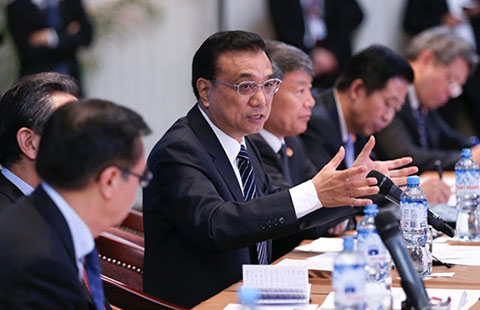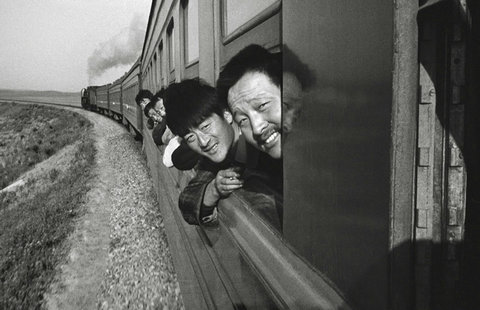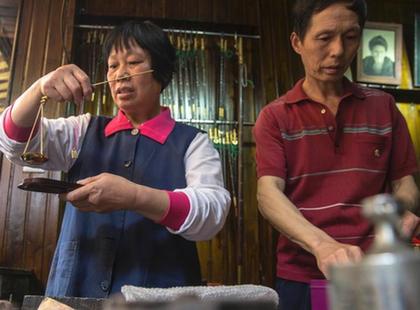Ho Feng Shan: A man of compassion, courage
Updated: 2015-04-24 11:18
By May Zhou(China Daily USA)
|
||||||||
'Sheer persistence'
However, Ho Manli painstakingly scoured archives in Washington, Vienna and Israel, and doggedly looked for survivors. Little by little, through what she termed "sheer persistence and serendipity", she was able to fill in the history piece by piece.
Posted to Vienna in 1937, Ho Feng Shan was appointed China's consul general in April 1938, one month after the Anschluss, and witnessed the fierce anti-Semitism and persecution of Jews that followed the Nazi takeover.
Many Jews from Austria and Germany tried to emigrate, but found almost no country willing to allow them entry. Their plight was further exacerbated by the July 13, 1938, resolution of the Evian Conference, which made it evident that nearly none of the 32 participating nations was willing to accept Jewish refugees.
To force Jews to emigrate, the Nazis instituted methods combining coerced expulsion and economic expropriation, Ho Manli said. Nazi authorities told Jews that if they showed proof of emigration - such as an entry visa with an end destination - they, as well as relatives deported to concentration camps, would be allowed to leave.
In his memoir Forty Year of My Diplomatic Life, Ho would later write: "Since the Anschluss, the persecution of Jews by Hitler's 'devils' became increasingly fierceI spared no effort in using any means possible to help, thus saving countless Jews!"
However, unlike his fellow diplomats, Ho Manli said, her father faced a unique dilemma at the time: Most of his home country and all its ports of entry had been occupied by the Japanese since 1937. Any document or entry visa issued by a Chinese diplomat would certainly not be recognized by the Japanese occupiers.
"In order to help Jewish refugees, my father came up with an ingenious way to use an entry visa as a means of exit or escape," she explained.
Ho's entry visas were issued to only one end destination - the Chinese port city of Shanghai, Ho Manli said. The Shanghai visas would provide Jewish refugees in Austria with the proof of emigration required by the Nazis to leave.
Practicing what he called a "liberal policy", Ho authorized the issuing of visas to any and all who asked. Armed with a Shanghai end destination visa, Jews could then obtain transit visas to escape to other countries.
"I knew that the visas were to Shanghai 'in name' only," Ho would later recall. "In reality, they provided a means for Austrian Jews to find a way to get to the United States, England or other preferred destinations."
Many Jews were also released from the concentration camps of Dachau and Buchenwald on the strength of these Shanghai visas, Ho Manli said.
Shanghai itself, however, required no entry papers. In 1937, the city had fallen into the hands of the Japanese. The Chinese Nationalist government had retreated to Chongqing, leaving Shanghai harbor wide open, without passport control or immigration. As a result, anyone could land without documents, Ho Manli explained.
"My father knew that and in making Shanghai an end destination, he would spread the word to Jews in other Nazi occupied territories that there was in China a refuge which required no entry papers," Ho Manli said.
"He wanted to provide a failsafe to refugees not able to land elsewhere," she continued. "That is why the majority of the 18,000 Jewish refugees who ended up in Shanghai were from Germany, not Austria. Most of the Austrian Jews who were able to obtain visas from my father's consulate used them as a means to escape elsewhere - Cuba, the Philippines, England, North and South America and Palestine."
- Fourth generation of 'face-kini' soon to hit beach in Qingdao
- Tibetan town captures photos of their 'panda deity'
- 600 arrested in Beijing's vice crackdown
- Building collapse in Guizhou caused by landslide: govt
- Xi welcomes Japan delegation but warns against historical distortion
- Chinese Vice-Premier stresses flood control
- Ireland becomes first country to vote for equal marriage: PM
- Gov't declares high alert after landslide blocks Kali Gandaki River in Nepal
- Restorers give shape to Pompeii victims
- China, Russia end joint naval exercises
- Japanese visit underlines thaw in relations
- China, Brazil cooperation can ride 'winds and tides'

 Premier talks with Chinese entrepreneurs in Peru
Premier talks with Chinese entrepreneurs in Peru
 Tourists enjoy themselves at Mingsha Hill desert
Tourists enjoy themselves at Mingsha Hill desert
 Colombia: A birdwatcher's paradise
Colombia: A birdwatcher's paradise
 Journey of a migrant girl from village to ad world
Journey of a migrant girl from village to ad world
 Photographer captures Chinese on the train
Photographer captures Chinese on the train
 Hou Hsiao-Hsien's The Assassin premieres in Cannes
Hou Hsiao-Hsien's The Assassin premieres in Cannes
 Top 10 highest-paid white-collar jobs in China
Top 10 highest-paid white-collar jobs in China
 The dying craft of balance scales
The dying craft of balance scales
Most Viewed
Editor's Picks

|

|

|

|

|

|
Today's Top News
Chinese premier arrives in Chile for official visit
Expansion of free trade possible on Chile visit
Chilean president sees promising prospects for relations with China
Chinese premier encourages firms to upgrade cooperation with Peru
China, Peru agree on feasibility study on transoceanic railway
China manufactures first
car for US market
Wisconsin hopes to make cheeseheads in China
China, Peru to diversify trade focus
US Weekly

|

|







